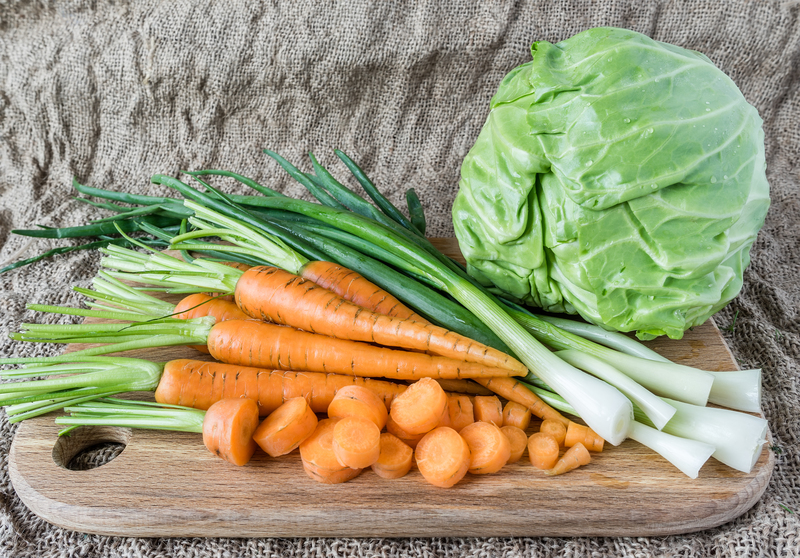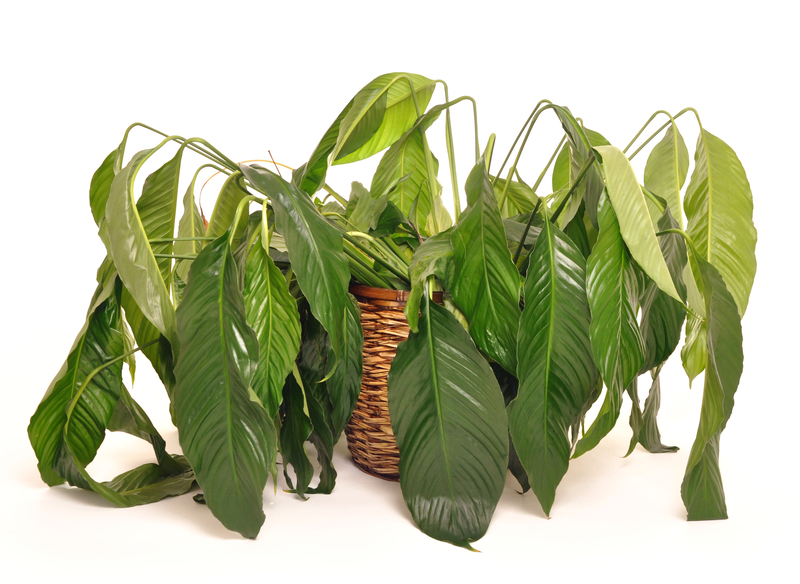Discover the Joy of Herb Gardening
Posted on 15/09/2025
Discover the Joy of Herb Gardening
Are you dreaming of a thriving green space brimming with fragrant, flavorful plants? It's time to discover the joy of herb gardening! Whether you're a novice gardener or a seasoned horticulturist, cultivating your own herbs can bring endless delight to your kitchen, health, and overall well-being. Herb gardening is one of the most rewarding and accessible forms of gardening, offering homegrown freshness, sensory pleasure, and a sustainable lifestyle right at your fingertips.

Why You Should Start an Herb Garden
Herb gardening isn't just about producing your own seasonings; it's about connecting with nature in your daily life. Here's why cultivating aromatic and culinary herbs is an activity everyone should try:
- Fresh Flavors: Nothing compares to the taste of just-picked basil or aromatic rosemary, elevating your recipes from ordinary to exceptional.
- Cost-Effective: A small investment in seeds or seedlings gives you a season-long (or year-round) supply of organic, pesticide-free herbs.
- Wellness Benefits: Many popular herbs offer antioxidant, anti-inflammatory, and immune-supporting properties.
- Therapeutic Value: Gardening has proven mental health benefits, reducing stress and fostering mindfulness.
- Sustainable Living: Growing your own herbs reduces single-use packaging and food waste.
- Aesthetic Value: Herbs fill gardens, windowsills, or balconies with vibrant colors, lush textures, and inviting scents.
Getting Started with Herb Gardening
Choosing the Right Location
Choosing the ideal spot is the first step to successful herb gardening. Most herbs love abundant sunlight, so look for:
- A sunny spot that gets at least 6 hours of direct sunlight daily
- Access to water, but well-drained soil to prevent root rot
- Protection from harsh winds or heavy rains
Note: If you lack garden space, container herb gardening on a balcony, patio, or sunny windowsill is equally rewarding!
Selecting the Best Herbs for Beginners
If you're new to the joy of herb gardening, start with easy-to-grow, hardy herbs. Here are some beginner favorites:
- Basil: The quintessential kitchen herb, thriving in warmth and sunshine.
- Mint: Vigorous and fragrant, best grown in containers to prevent spreading.
- Parsley: Biennial, packed with vitamins, and perfect for succession planting.
- Chives: Compact and cut-and-come-again.
- Rosemary: Mediterranean herb that thrives in well-draining soil.
- Thyme: Hardy and aromatic, excellent for borders or hanging planters.
- Cilantro (coriander): Fast-growing and flavorful, though prone to bolting in hot weather.
- Sage: Evergreen, savory, and beautiful with purple flowers.
Growing Herbs Indoors vs. Outdoors
Both indoor herb gardening and outdoor plots have distinct advantages:
- Indoors: Year-round harvest, total climate control, less risk of pests.
- Outdoors: Larger yields, natural pollination, beneficial insects, and diverse growth opportunities.
Mix and match by keeping a few potted herbs in your kitchen windowsill for convenience, while developing an outdoor or balcony garden for bigger harvests!
How to Create Your Own Herb Garden
From Seeds or Starter Plants?
For those beginning their herb gardening journey, starter plants are a great way to get instant greenery and a quick harvest. Seeds, on the other hand, offer cost savings and a broader variety of cultivars. Many gardeners plant both!
- Sow seeds indoors early in the season and transplant after frost, or sow directly outdoors when the weather is warm.
- Transplant starter plants into pots, raised beds, or designated garden spaces.
Soil and Drainage
Herbs flourish in loose, fertile, and well-draining soil. Mix your soil with compost or well-rotted manure for nutrition. Potted herbs need containers with good drainage holes and a soilless potting mix.
Watering and Feeding
- Water deeply but infrequently, allowing the top inch of soil to dry between waterings. Avoid soggy soil, which causes root rot.
- Feed lightly with an organic fertilizer or compost every few weeks during the active growing season.
- Avoid high-nitrogen fertilizers, as these can cause excessive leafy growth at the expense of fragrance and flavor.
Harvesting Your Herbs for Maximum Flavor
Regular harvesting encourages bushy growth and continuous supply. Here are some pro tips:
- Snip herbs early in the morning when essential oils are most concentrated.
- For leafy herbs such as basil, pinch off the tops, leaving several sets of leaves.
- Never remove more than one-third of the plant at a time to avoid stress.
- Flowering signals maturity; for most culinary herbs, harvest before flowering for best flavor.
Enjoying Your Homegrown Herbs
Culinary Adventures
The joy of herb gardening truly comes alive in the kitchen. Fresh herbs:
- Add freshness and vibrancy to salads, sauces, and dressings.
- Flavor roasted meats, fish, and vegetables with robust aromas.
- Infuse oils, vinegars, butters, and teas with delicious fragrances.
- Provide unique twists to cocktails, desserts, and even breads.
Tip: Chop, muddle, or bruise fresh herbs just before using to release their essential oils for maximum flavor impact.
Preserving Your Herbal Bounty
Don't let any of your homegrown herbs go to waste! Preserve them for year-round use by:
- Drying: Air-drying or using a dehydrator keeps leaves useable for months.
- Freezing: Chop and pack into ice cube trays with olive oil or water for instant flavor boosts.
- Infusing: Create herbal oils, vinegars, and butters for gourmet gifts or daily use.
Herbs for Health and Wellness
Many garden herbs have traditional uses beyond flavoring:
- Chamomile makes a calming tea that supports relaxation.
- Mint aids digestion and soothes headaches.
- Sage supports oral health and soothes sore throats.
- Lavender promotes restful sleep and relieves anxiety.
Always consult with a healthcare professional before using herbs for medicinal purposes, and enjoy the process of discovering unique herbal remedies with each season.
Creating a Beautiful and Functional Herb Garden Design
Container Herb Gardening
No garden beds available? Container herb gardening offers flexibility, style, and mobility. Mix and match colorful pots and different varieties for a charming display!
- Use large pots or grouped smaller containers for a decorative effect.
- Choose containers with drainage holes and place saucers underneath.
- Plant trailing varieties like oregano or thyme on the edges for visual interest.
- Move containers indoors if temperatures drop, ensuring year-round herbs.
Raised Beds and Border Plantings
Raised beds allow for optimal soil control, drainage, and ease of access:
- Delineate sections for annual and perennial herbs.
- Incorporate companion planting to deter pests naturally.
- Add pathways or stepping stones for convenient harvesting and care.
Creative Herb Garden Ideas
- Vertical Gardens: Mount planters or pockets on a sunny wall or fence.
- Kitchen Windowsills: Grow petite pots of basil, chives, and parsley within arm's reach.
- Edging and Borders: Plant low-growing herbs like thyme along pathways for beauty and aroma.
- Themed Beds: Create a "pizza garden" with basil, oregano, and parsley or a "tea garden" with chamomile and mint.

Troubleshooting Common Herb Gardening Challenges
- Pest Control: Use companion planting, natural repellents, and regular inspection to keep aphids and caterpillars at bay.
- Overwatering: Remember, most herbs prefer slightly dry conditions; yellowing leaves signal too much water.
- Bolting: In hot weather, herbs like cilantro may flower and set seed quickly. Succession sow for a constant supply.
- Poor Growth: Ensure proper sunlight, avoid overcrowding, and rotate crops annually if you plant in beds.
Conclusion: Savor the Joy of Your Herb Gardening Journey
From spring's first shoots to winter's preserved harvest, herb gardening is truly a journey filled with flavor, fragrance, and fulfillment. There's nothing more satisfying than snipping fresh parsley for your soup or brewing a soothing cup of chamomile tea picked from your patio planter. By nurturing a diverse selection of herbs, you'll enjoy beauty, health, and the pure culinary joy that only a home herb garden can deliver.
Ready to experience the joy of herb gardening for yourself? Gather your seeds, choose a sunny spot, and start your herb-filled adventure today. Not only will your meals taste better, but your soul will be nourished by every green, aromatic leaf you grow.
```Latest Posts
Curating a Creative and Safe Garden for Your Kids
Vertical Gardening: Elevate Your Home's Aesthetics
Discover the Joy of Herb Gardening

